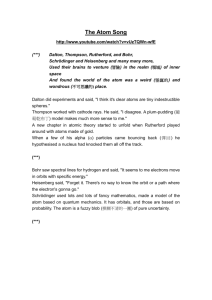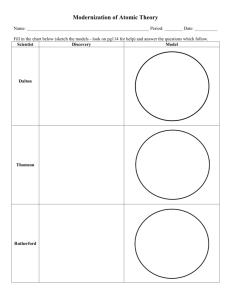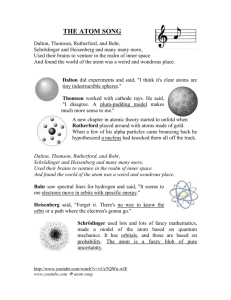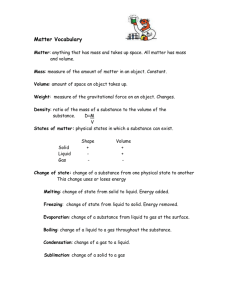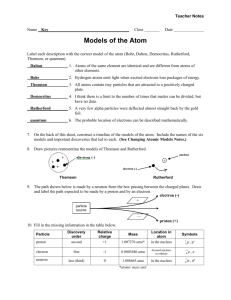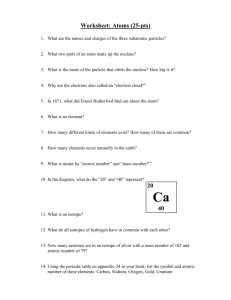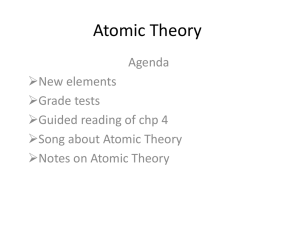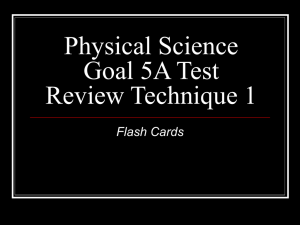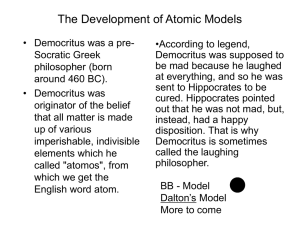Day 21 Atomic Theory II - WaylandHighSchoolChemistry
advertisement
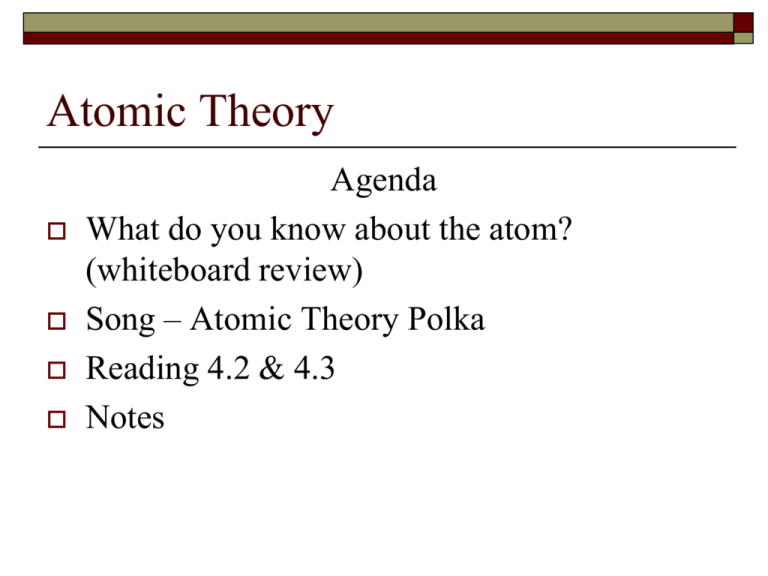
Atomic Theory Agenda What do you know about the atom? (whiteboard review) Song – Atomic Theory Polka Reading 4.2 & 4.3 Notes What do you know about the atom? Who was Democritus? What did he contribute to the model of the atom? Who came up with the atomic theory? What were his four points? Mn manganese scandium Sc Fe iron titanium Ti Co cobalt vanadium V Ni nickel chromium Cr Cu copper zinc Zn Song Time Atomic Theory Polka Dalton, Thomson, Rutherford and Bohr. Schrödinger and Heisenberg, and many, many more. Used their brains to venture in the realm of inner space and found the world of the atom was a weird and wondrous place. Dalton did experiments and said, “I think it’s clear, atoms are tiny indestructible spheres.” Thomson worked with cathode rays and said, “I disagree. A plum-pudding model makes much more sense to me.” A new chapter in atomic theory started to unfold when Rutherford played around with atoms made of gold. When a few of his alpha particles came bounding back, he hypothesized a nucleus had knocked them off the track. Dalton, Thomson, Rutherford and Bohr. Schrödinger and Heisenberg, and many, many more. Used their brains to venture in the realm of inner space and found the world of the atom was a weird and wondrous place. Bohr saw spectral lines for hydrogen and said, “It seems to me.. Electrons move in orbits with specific energies.” electron neutron proton Heisenberg said, “Forget it, there’s no way to know the orbit or a path, where the electron’s gonna go.” Schrödinger used lots and lots of fancy mathematics, and made a model of the atom based on quantum mechanics. It has orbitals and those are based on probability. The atom is a fuzzy blob of pure uncertainty. Dalton, Thomson, Rutherford and Bohr. Schroedinger and Heisenburg, and many, many more. Used their brains to venture in the realm of inner space and found the world of the atom was a weird and wondrous place. Read 4.2 – 4.3 in a 6 inch voice Fill out the study guide as you read in complete sentences. Use your own words! It will help you to remember more. Atomic Theory Part II Date: JJ Thomson Found electron Used cathode ray tube “Plum Pudding” or “Chocolate Chip Cookies” model Robert Millikan Determined the electrical charge of electron “Oil Drop Experiment” Still plum pudding model Eugen Goldstein Found the proton Reverse cathode ray tube Still plum pudding model Ernest Rutherford Found nucleus Gold foil experiment Atom is mostly empty space – first nuclear model James Chadwick Found neutron Shot alpha particles at Be nucleus Nucleus is made of two particles Positive protons Neutral neutrons Niels Bohr Planetary model Proposed electrons have a set amount of energy putting them in different energy levels, or orbits around the nucleus. Electrons can change energy levels; higher energy levels are further from the nucleus. electron neutron proton Heisenberg’s uncertainty principle Heisenberg’s uncertainty principle: cannot know exactly both the velocity and position of electron at the same time. Like trying to catch a helium balloon in the dark. Schrödinger Electron cloud gives a 90% probability of finding the electron within the darkly shaded area. Electrons move like moths around a light – unpredictable. Homework Last element quiz FRIDAY!
